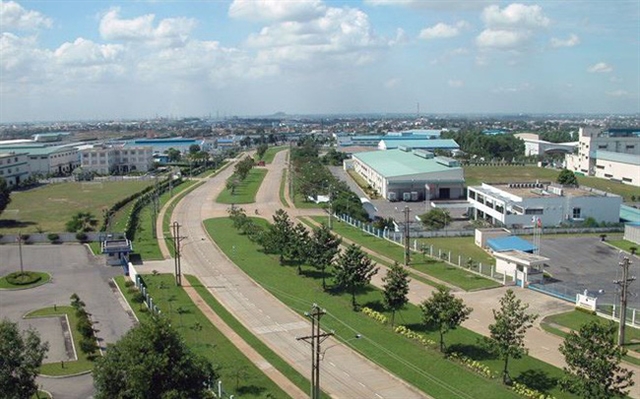Industrial park developers continue to do well amid the Covid-19 pandemic, and the sector is expected to thrive since Viet Nam is considered among the most attractive investment destinations post-pandemic.

Industrial park infrastructure development companies continue to do well amid the Covid-19 pandemic, and the industrial property sector is expected to thrive since Viet Nam is considered among the most attractive investment destinations post-pandemic.
Sonadezi Corporation, whose main businesses include industrial park infrastructure development and leasing, reported net revenues of VND1.078 trillion (US$46.5 million) and net profit after tax of nearly VND271 billion ($11.7 million) in the first quarter of the year, a year-on-year increase of 11 per cent and 51 per cent.
Industrial park leasing accounted for the largest proportion of revenues – of over 27 per cent -- with VND293 billion ($12.6 million), a year-on-year increase of 66 per cent.
Long Hau Corporation, which owns Long Hau Industrial Park in Long An, reported an increase in both revenues and profits in the first quarter.
Net revenue was VND206.4 billion ($8.9 million), up 19.7 per cent year-on-year, and gross profit was more than VND93.6 billion ($4.02 million), up 20.6 per cent.
Revenues from infrastructure rent grew by 21 per cent to nearly VND159 billion, or 77 per cent of total revenues.
Revenues from leasing factories and accommodation increased by over 22 per cent to nearly VND28 billion.
Profit after tax was VND63.1 billion ($2.7 million), an increase of more than 15 per cent year-on-year.
According to real estate consultancy Jones Lang LaSalle, though the pandemic could cause a delay in decisions following lease negotiations, the fundamentals of the market remain strong and would recover after the epidemic subsides.
It said companies looking to diversify their manufacturing portfolio outside China are attracted to Viet Nam thanks to its proximity to the former.
"Industrial park developers remain confident that demand for land will continue to grow and therefore land prices are expected to increase in line with the long-term potential of Viet Nam’s industrial segment," Stephen Wyatt, country head of JLL Vietnam, said.
Viet Nam's industrial land prices rose by 12 per cent year-on-year in Q1 as the shift out of China by manufacturing facilities continued.
They rose by 6.5 per cent in the north to $99 per square metre and by 12.2 per cent in the south to $101.
Ready-built factories costing $3.5-5 per square meter per month are favoured by businesses as indicated by the high occupancy rates, according to the report.
Attracting FDI
Don Lam, VinaCapital co-founder and CEO, said a survey by Harris Polling earlier this month found that over 70 per cent of Americans think US firms should scale back their manufacturing in China.
“There has also been an increasing number of articles in publications such as The Economist and Foreign Policy, as well as comments from notable investors like Mark Mobius, and from organisations like JETRO and AT Kearny all predicting that Viet Nam is set to benefit from an acceleration in the movement of manufacturing out of China.
“For these reasons, we believe that a wave of FDI inflows is inevitable after the COVID-19 medical issue is resolved (about one year from now). However, the Ministry of Planning and Investment can start taking steps now to promote high-quality FDI inflows for years to come.”
For instance, the ministry could document and publicise the measures that have been taken to successfully manage the outbreak, he said.
The Government’s early and aggressive public health measures, as well as the innovative measures deployed including Viet Nam’s unique “scoring system” approach to evaluate the risks of various businesses to the virus further reinforce the countries attractiveness as an FDI location, he added. — VNS





